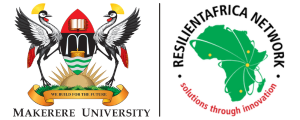EA RILab Vision
The EA RILab is hosted by Makerere University School of Public Health in Kampala, Uganda. The RILab examines community resilience in the face of climate change and conflict in the region. With Makerere University as the lead, the lab draws on 3 Network Plus Partners: Gulu University in Uganda, National University of Rwanda in Rwanda and University of Kinshasa in the Democratic Republic of Congo (DRC).
Thematic Areas of Focus
Resilience to shocks and stresses arising out of climate variability and its effects on livelihoods in Eastern Africa There are multiple loci in Eastern Africa that are increasingly at risk for adverse climate events. These recurrent events render the same damage to livelihoods and infrastructure despite predictability, millions of aid in response, and attempts at mitigation. Climate change manifests as recurrent landslides, disease epidemics, floods and droughts.
Resilience to shocks and stresses arising out of chronic conflict and their effect on livelihoods Conflict in Eastern Africa takes on different manifestations such as the slow pace of recovery after the guerrilla conflict in Northern Uganda, the persistent cases of Gender Based Violence in DRC and an increasing influx of Congolese refugees into Rwanda.
Geographic Coverage & Manifestations
Uganda
- Albertine region (Kasese, Hoima and Nebbi districts): Recurrent epidemics and floods.
- Teso region (Soroti, Amuria and Katakwi districts): Recurrent drought alternating with floods.
- Elgon region (Bududa, Manafwa and Butalejja districts): Recurrent landslides and floods.
- Northern region (Lira , Pader and Lamwo districts): Slow recovery after a chronic conflict.
Rwanda
- Nyamagabe and Gicumbi sectors: Influx of refugees from DRC.
- Musanze, Nyabihu and Rubavu sectors: Recurrent landslides and floods.
Democratic Republic of Congo (DRC)
- North and South Kivu provinces: Gender Based Violence (GBV).
Dimensions of Resilience
Dimensions of Resilience to Climate Change & Conflict: The RILab has identified 9 dimensions of resilience that impact the vulnerability, mitigation and adaptive capacity of communities faced by climate change and conflict. These will be central during infusion of innovations to impact change in the target communities. These include;
- Wealth
- Health
- Agriculture
- Infrastructure
- Governance
- Human Capital
- Social Networks
- Environment
- Psychosocial


